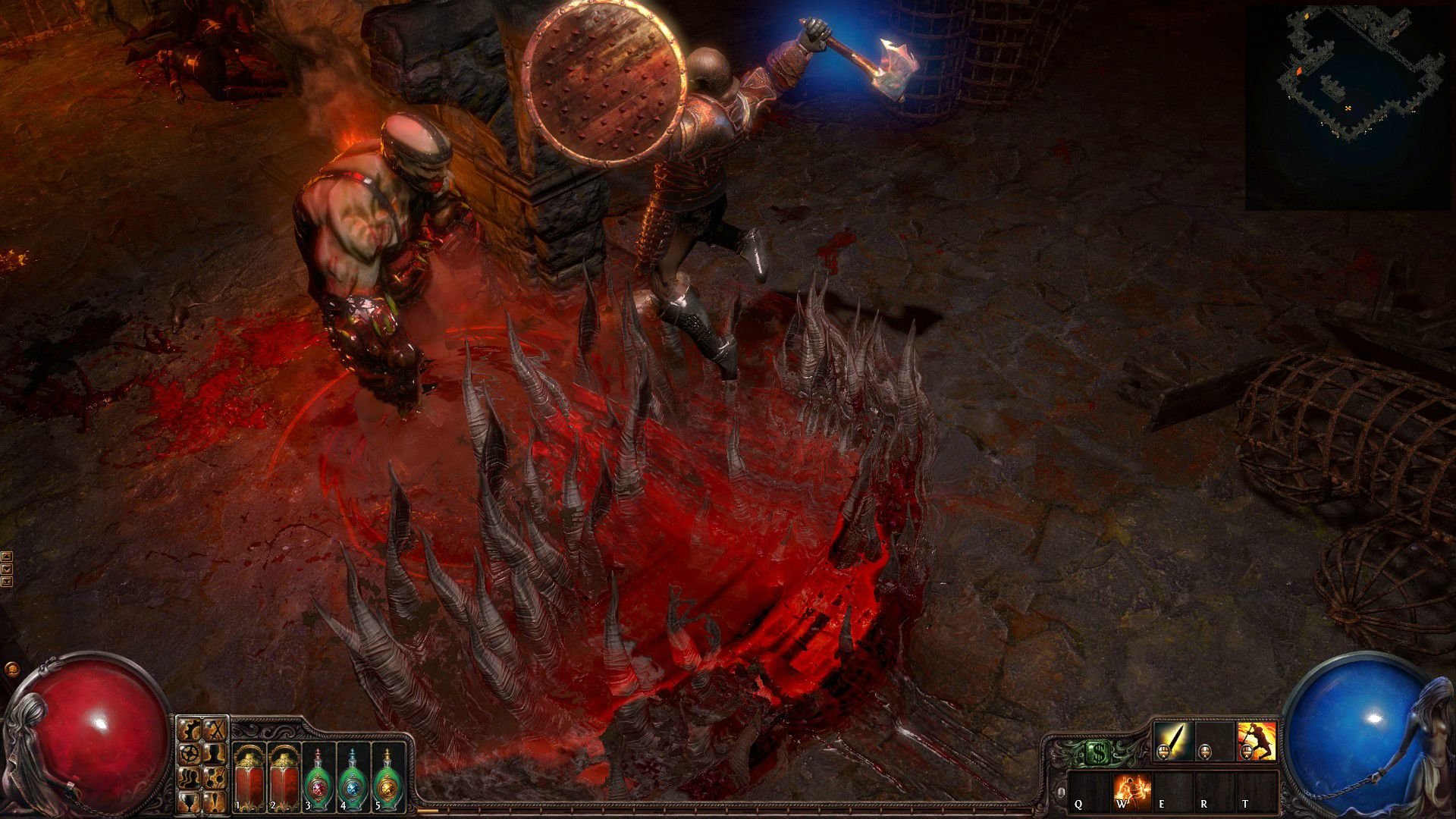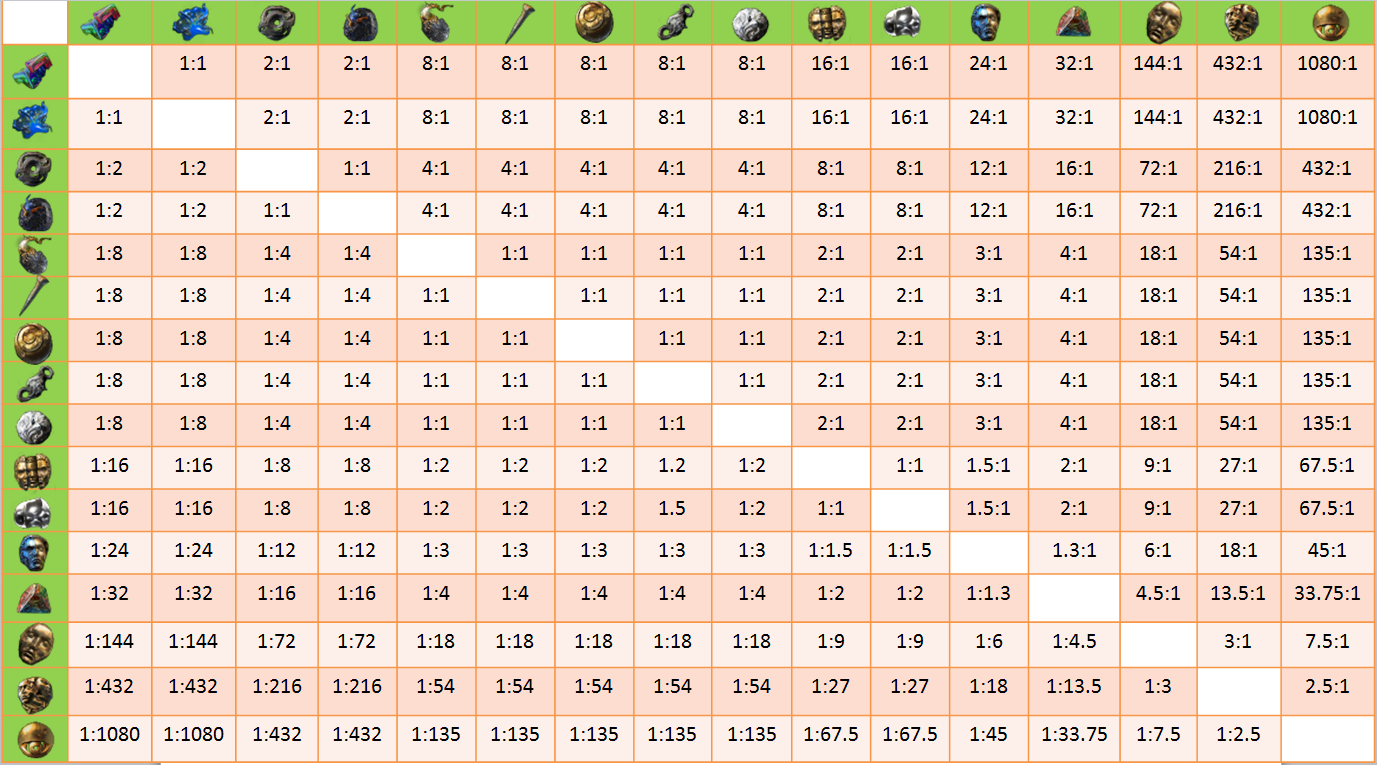
I had not played any videos games for a few months, but recently Titan Quest Anniversary Edition came out, and I received a free copy for owning the original Titan Quest on Steam previously. Diablo II was my favorite game of my childhood and Diablo-like ARPGs are my favorite genre of games, so I decided to give Titan Quest a try and I had been hooked for the past week.
I have also played Path of Exile and the Borderlands series extensively for the past few years, and I would consider them to be the best modern reincarnations of Diablo II. I have tried nearly every game of this genre that I could find, other than Grim Dawn, which I just got in this month's Humble Monthly. Overall, I have probably dedicated 2000 hours of my life to this genre of games. I'm not quite an expert by Malcolm Gladwell's 10,000 hour rule and I don't even have a gaming Youtube or Twitch channel, but I have learned some valuable lessons playing such games.
1. Game economy makes or breaks the game.
Path of Exile has by far the best economy of any video game of any genre. I would go even as far as calling it the bitcoin of gaming. It completely changed the way I thought about economics in gaming. Some critics have called it a trading simulator masquerading as an ARPG, which I consider a praise rather than an insult. There are many reasons why the game economy works so well and I could write a whole post just on that, which I might in the future.
The key reason is that the currency is the crafting consumables. The players literally have to use currency to craft items throughout the game. Unlike other ARPGs where crafting is optional, crafting is necessary to progress through the game, yet it's also completely dependent on the player's decisions, and never forced on you. The reason for this is that you don't level up a skill tree; all skills are modular built through linking sockets in items and can be modified at any time using currencies. Based on the supply and user value, each crafting consumable has a fairly stable exchange rate relative to the other crafting consumables. Unlike other games, gold hoarding doesn't exist. You don't see 3 gold drop in level 1 areas and 3,000,000 gold drop from end game areas. You get the same drops throughout the game and higher level items do not give you more currency from the NPC vendors. Value of items is judged by other players on the free market according to their actual in game utility.

2. Being born rich does not necessarily make you do better later in life.
In ARPGs, there is a practice known as twinking, which means when you start a new character, you equip it with powerful items that you found previously through other characters to help breeze through the early game like a joke. This allows you to reach end game much faster. This is equivalent to inheriting riches from your parents in real life. Your early life would be much easier than other people's, but that doesn't help if your end game build sucks or if you simply don't have good playing skills.
If you have great skills, you can beat the whole game without ridiculous gear or stats. Having lots of money and great physical stats are nice, but you can live a satisfying and impactful life without having either if you're very skillful at working with what you have. Just watch this guy beat Dark Souls, an infamously difficult game while staying at level 1.
3. You only have one life, prepare for black swan risks.
Often in ARPGs, you be breezing through the game at full health then suddenly get one shotted without even knowing what hit you. One great example is hitting a reflect mob in Path of Exile. You have consider all risks of death from a variety of damage types. This is much like trading options or altcoins, where you lose all your money in a short time frame. Much like real life, you can make small incremental gains, then suddenly lose everything in a catastrophe. The more aggressive you play, the more likely that you will lose. You can never be too careful when playing in hardcore mode, and real life is a game in hardcore mode.
4. The journey is more enjoyable than the result.
While playing Titan Quest this week, I remembered the joys of playing Diablo II, Dark Souls, Path of Exile, Borderlands, and various other games when I first played them. The fun is in the joy of discovering something new and planning out awesome builds, not in actually playing an awesome end game build.
Choosing a major in college is like planning a build in an ARPG. You weigh the pros and cons of all the different character classes you can play in life and decide on the one that you think will be the coolest or the most powerful. However, if you stick with one profession, you become ignorant of other play styles and become bored due the lack of variety.

I approached my education in the same way I approached games. I explore many builds, but rarely play end game for long. Once I reach a level of expertise in a topic, rather than seeking to reach level 100 with diminishing marginal returns, I simply restart and learn something new as a beginner. Variety is the spice of life. This is why indifference curves are concave.

5. Gaming is like meditation + traveling.
While gaming, I enter into an altered state of consciousness. Nothing else in the world matters and I have my full attention on the task at hand. This is a trance state much like what people seek to enter through meditation. I used to feel guilty when I "waste" too much time in a game, but not anymore. When I was playing Titan Quest this week, I asked myself if I could be doing something better, and the answer was "no". I really enjoyed the experience in the moment and I was learning through experience about gamification and mythology, two topics that are very relevant to my startup. Life is a game, and all games are mini-games in life. If I really enjoy the mini-games within a game, that doesn't make the game bad, in fact, that just makes the game even more fulfilling. There is no shame in enjoying the mini-games within games, so there should be no shame in enjoying the mini-games in life.
Also, when playing a new RPG, you travel to new places and learn about them, much like traveling in the real world. Variety is the spice of life, and variety of location is very important in life, physically or virtually. Psychedelic drugs are considered "trippy", because they take you places where you have never been before. Video games provide the same richness of new experiences and locations. This combination of sensory novelty is what people call altered states of consciousness, which include video games, float tanks, psychedelics, sex, alcohol, marijuana, traveling, and more. Anything that changes your state of mind can provide mind expanding potential that allows you to experience the world in new ways and decrease your level of confirmation bias.

Thanks for reading! If you enjoyed this post, you can follow me at @limitless
This post replaces this week's "Five Bullet Friday" post. Next week, I will resume with a more normal "Five Bullet Friday" post.


